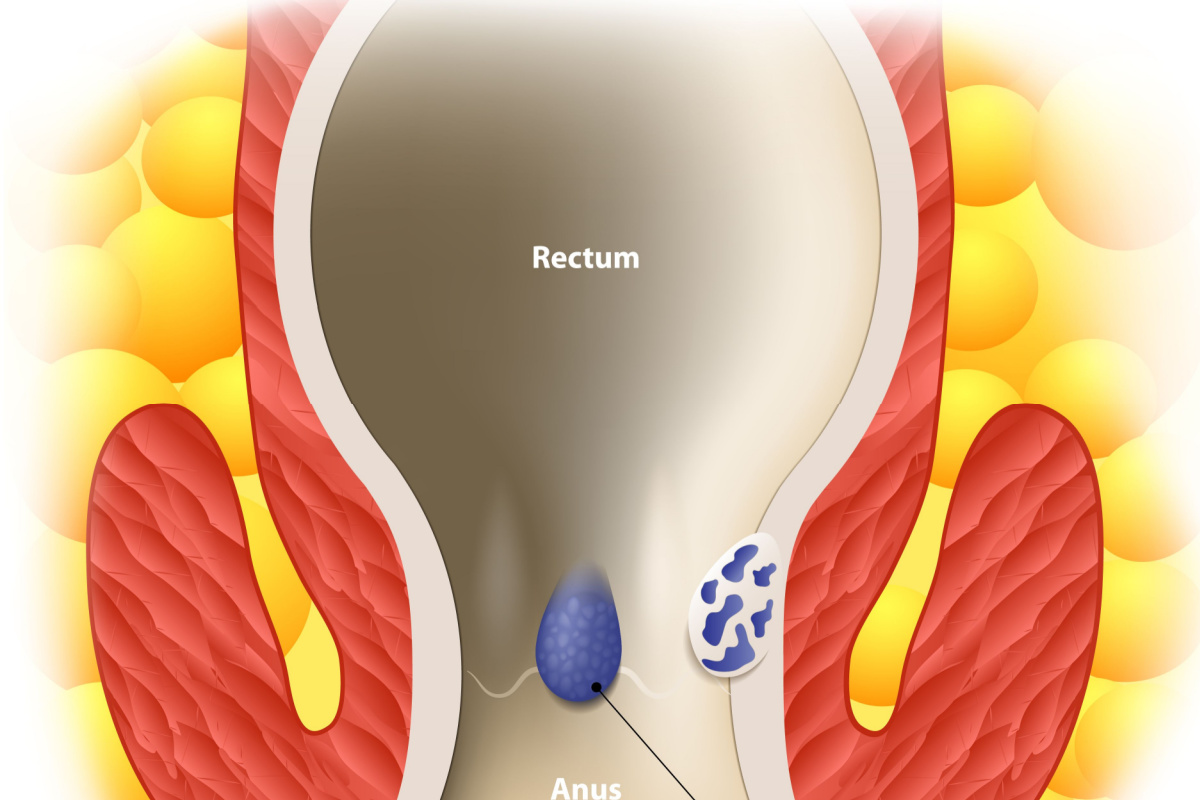
Hemorrhoids Risk Factors
Age: Over time, tissues in the body weaken and may be less effective at supporting the veins in the rectum, making it easier for hemorrhoids to develop.
Pregnancy and childbirth: Carrying a child during pregnancy can put excess pressure on the blood vessels in the pelvic region. Additionally, pushing during childbirth increases pressure, leading to hemorrhoids.
Obesity: Individuals with obesity may be at risk of developing hemorrhoids for several reasons, including extended periods of sitting or inactivity.
Symptoms
Hemorrhoid symptoms vary based on the type of hemorrhoid you have — either internal or external. The following signs may indicate you are suffering from an internal hemorrhoid:
- Blood in your stool, in the toilet bowl, or on the toilet paper, especially if it is a bright red
- Painless bleeding
If you have an external hemorrhoid, you may experience:
- Pain during or after a bowel movement; cleaning the area may result in more pain
- Swelling or inflammation near the anus
- Itching
Additionally, blood can accumulate in an external hemorrhoid to form a clot. This is known as a thrombosed external hemorrhoid and may result in:
- Sudden and severe pain in the affected area
- A hard lump near the anal region
Treating Hemorrhoids
Avoid straining: Straining during a bowel movement can cause the veins around the anus to bulge, which can result in hemorrhoids.
Consume more fiber: Eating enough fiber can make it easier for you to have bowel movements. You might also consider limiting foods that are low fiber, such as processed snacks and cheese.
Minimize alcohol intake: Often, hemorrhoids can be treated at home with lifestyle changes, which may include limiting your consumption of alcohol and other substances that can worsen constipation.
Surgery: Sometimes, lifestyle changes are not enough to treat the pain caused by hemorrhoids. If an external hemorrhoid develops a clot, you may need to undergo surgical treatment. This may include rubber band ligation, which involves placing a small band at the base of the hemorrhoid to shrink it, or a hemorrhoidectomy, which is needed in more severe cases.
Hemorrhoid Relief in Atlanta
You do not have to suffer from painful and disruptive hemorrhoid symptoms. Contact our office to schedule your appointment with one of our colorectal experts.

